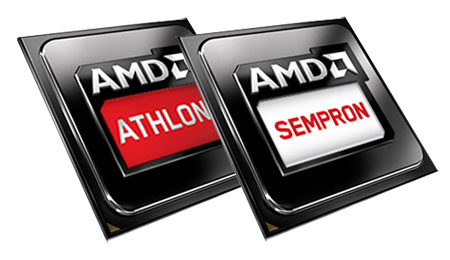Our Aim
To provide you with an overview on New And existing technologies, hopefully helping you understand the changes in the technology. Together with the overviews we hope to bring topical issues to light from a series of independent reviewers saving you the time And hassle of fact finding over the web.
We will over time provide you with quality content which you can browse and subscribe to at your leisure.
TekSpek 's

AMD AM1 APUs Codename Kabini
Date issued:
AMD's Kabini Accelerated Processing Units (APUs) on the FM2+ socket constitute a mixture of mid-range and high-end parts for the desktop market. Yet, with regards to socketed and upgradeable APUs, Kaveri APUs are the only current option available to AMD customers.
At the lowest end of the desktop market AMD and Intel's offerings are both based on soldered non-upgradeable system-on-chips (SoCs). A case in point is Intel's current Bay Trail Celeron and Pentium parts but also AMD's Kabini and Temash APUs. Thus the system builder in the ultra-low-cost market segment is constrained to three platforms, with limited longevity and performance.
AMD's solution to that limitation is to release a socketed variant of Kabini platform known as AM1. These new AM1 processors are traditional APUs in the sense that they incorporate a CPU and GPU component but they also integrate the chipset and its associated I/O capability. The deployment of a uniform FS1b socket for all AM1 APUs means any AM1 motherboard can be used with any Kabini APU.
Such a design allows for increased flexibility in the entry-level segment and a potential upgrade pathway for users on the lower-end AM1 parts. Better still, AM1 retains full compatibility with Windows operating systems and can access up to 16GB of memory meaning unfettered 64-bit support.
Specification
| APU Model | CPU Cores |
CPU Clock (MHz) |
GPU Brand |
GPU Cores |
GPU Clock (MHz) |
Max. DDR3 (MHz) |
TDP (watts) |
Launch Price (US 1ku) |
|
|---|---|---|---|---|---|---|---|---|---|
| 28nm Kabini | |||||||||
| Athlon 5350 | 4 |
2,050 |
Radeon R3 |
128 |
600 |
1,600 |
25 |
$59 |
|
| Athlon 5150 | 4 |
1,600 |
Radeon R3 |
128 |
600 |
1,600 |
25 |
$49 |
|
| Sempron 3850 | 4 |
1,300 |
Radeon R3 |
128 |
450 |
1,600 |
25 |
$39 |
|
| Sempron 2650 | 2 |
1,450 |
Radeon R3 |
128 |
450 |
1,333 |
25 |
$35 |
|
In tandem with the launch of socketed Kabini APUs on the AM1 platform AMD is resurrecting the Sempron branding. Sempron denotes the two low-end AM1 models while Athlon branding denotes the two fastest. The deployment of Athlon branding also allows for a crossover region of Athlon parts spanning the top of the AM1 platform and the bottom of existing FM2.
Differentiation between the fastest and slowest AM1 APUs is controlled mainly through clock speeds variations between 1,300 to 2,050MHz on the CPU and 450 to 600MHz on the GPU, respectively. All AM1 APUs share the same 128 GCN cores and 25W TDPs. In the CPU department all APUs sport four cores with exception of the Sempron 2650 which gets only two. Memory on AM1 scales up to 1,600MHz, with the dual-core Sempron 2650 being limited to a lesser 1,333MHz.
Kabini AM1 is, quite obviously, nowhere near as powerful as Kaveri but AMD has ensured Kabini still benefits from the most current feature-set available. Kabini offers DirectX 11.2 graphics with support for two displays through any combination of HDMI, DisplayPort 1.2, DVI or VGA. There's also 64-bit OS support, a built-in video encoder and decoder engine, two USB 3.0 ports, eight USB 2.0 and a duo of SATA 6Gbps storage ports.

Placing the Athlon 5350 Kabini APU alongside the A10-7850K Kaveri APU reveals a noticeable size differential. AMD's Kabini makes use of a more compact package to save on manufacturing cost. A more compact APU also means a more spacious motherboard due to the smaller FS1b socket, allowing compact mITX solutions to be built cheaply. AMD hasn't disclosed die sizes but it is known that four Jaguar cores can fit inside the same space as a two Steamroller cores found on Kaveri.
AM1 platform, value and performance
Collectively the socketed Kabini APUs with socket FS1b motherboards are referred to as the AM1 package. Primarily a value-minded platform it isn't surprising that the cheapest AM1 APU and motherboard combination costs as little as $60, and the best just $100.
Distilled down to its bare essentials the AM1 platform is merely a scaled-down version of its bigger brother, Kaveri. The release of AM1 may be neither glamorous nor exciting but it does fill a valid gap in the market. Said gap sits between Intel's pre-soldered Bay Trail SoCs and the lower-end of the LGA 1150 range, the Pentiums. AM1 offers both a lower overall cost and a lower TDP.
Independent analysis from an array of reputable review websites reveals that the Kabini-powered Athlon 5350 is a solid processor for a low-cost build. Four Jaguar CPU cores matched with Radeon R3 graphics are capable of driving everyday applications, casual gaming and multimedia playback without a hitch.
Assembled AM1 systems make for surprisingly versatile workhorses that are suited to a wide range of environments; media centre PCs to large-scale office deployment. AM1 APUs and motherboards start from as low as £25 each. As always, Scan Computers has a wide range of AMD AM1 APUs and motherboards.